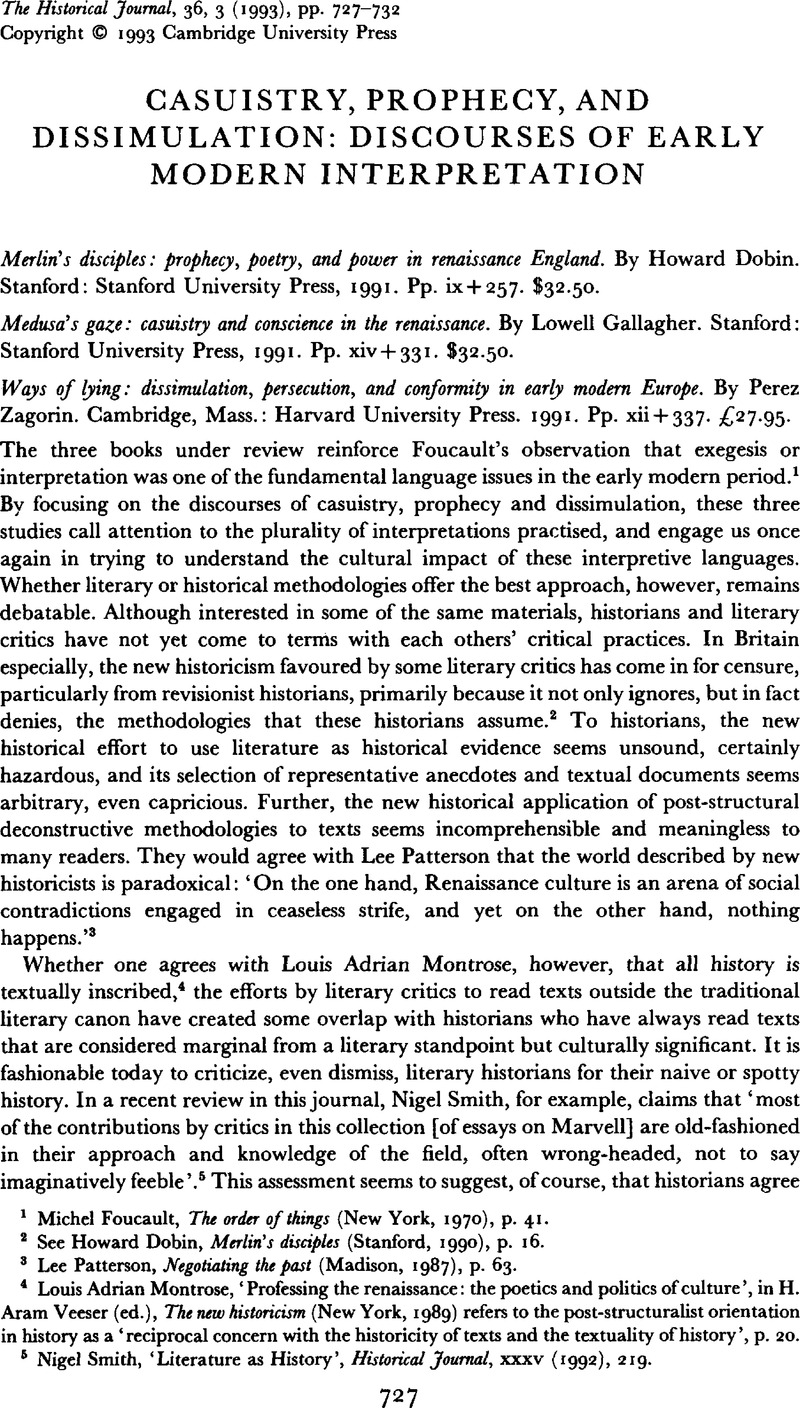No CrossRef data available.
Article contents
Casuistry, prophecy, and dissimulation: discourses of early modern interpretation
Published online by Cambridge University Press: 11 February 2009
Abstract

- Type
- Review Articles
- Information
- Copyright
- Copyright © Cambridge University Press 1993
References
1 Foucault, Michel, The order of things (New York, 1970), p. 41Google Scholar.
2 See Dobin, Howard, Merlin's disciples (Stanford, 1990), p. 16Google Scholar.
3 Patterson, Lee, Negotiating the past (Madison, 1987), p. 63Google Scholar.
4 Montrose, Louis Adrian, ‘Professing the renaissance: the poetics and politics of culture’, in Veeser, H. Aram (ed.), The new historicism (New York, 1989)Google Scholar refers to the post-structuralist orientation in history as a ‘reciprocal concern with the historicity of texts and the textuality of history’, p. 20.
5 Smith, Nigel, ‘Literature as History’, Historical Journal, XXXV (1992), 219Google Scholar.
6 Greene, Robert A., ‘Synderesis, the spark of conscience, in the English renaissance’, Journal of the History of Ideas, LI (1991), 195–219CrossRefGoogle Scholar.
7 Slights, Camille W., The casuistical tradition in Shakespeare, Donne, Herbert, and Milton (Princeton, 1971)Google Scholar; Sommerville, Johann P., ‘The “new art of lying”: equivocation, mental reservation, and casuistry’, in Leites, Edmund (ed.), Conscience and casuistry in early modeen Europe (Cambridge, 1988), pp. 159–84CrossRefGoogle Scholar; Sampson, Margaret, ‘Laxity and liberty in seventeenth-century English political thought’, in Leites, Edmund (ed.), Conscience and casuistry in early modern Europe (Cambridge, 1988), pp. 72–118CrossRefGoogle Scholar.
8 One of Lee Patterson's arguments against new historicism is its inattention to the ‘historically real’ and its denial of the individual and intentionality. See Negotiating the past, pp. 41–74.
9 For example, see Barker, Arthur, ‘Calm regained through passion spent’, in Rajan, B. (ed.), The prison and the pinnacle (Toronto, 1973), pp. 3–48Google Scholar.
10 At crucial points in his analysis, Zagorin relies on the interpretations of other historians for his arguments. See especially pp. 64, 91, 93, 97, 107, 145, 241, 260 and 267.


